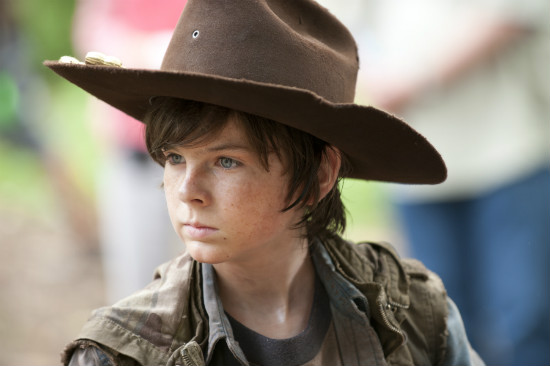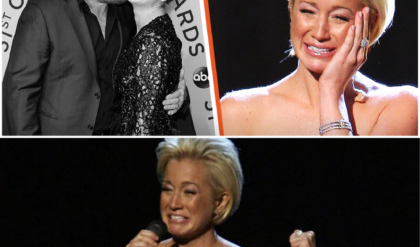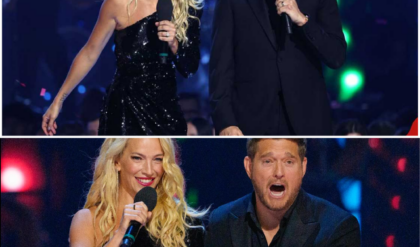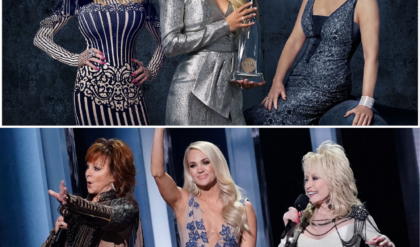

*SPOILERS AHEAD
If you really want to hear about it, the first thing you’ll probably want to know about Carl is that he killed off old Dale Horvath and a host of other folks across the zombie infested Georgia landscape. Carl was the kind of kid who was always killing you or getting you killed. And, to make matters worse, he was never in the goddam house when he was supposed to be!
Those sentiments have long been standard among fans regarding The Walking Dead’s only prominent pre-pubescent character, Carl Grimes. How ironic that on a show populated with monsters both alive and undead, a show in which chomping the flesh of the living is not merely the province of insatiably hungry Walkers, and where savage brutality can erupt from any character in any given moment, that the most polarizing figure is the slight silhouette of a little boy, nearly swallowed whole by his goofily too big deputy sheriff’s hat, just trying to make his way in a world that sees even the most mature adult characters fumbling and fighting for their humanity.
The criticisms against Carl are nearly as old as the show itself. In the beginning, fans found fault with the writers’ tendency to dangle the young tyke over a never ending pit of mortal danger, exploiting viewers’ emotions by continually threatening the Zombiepocalypse’s most vulnerable and least toughened survivor. As the events of season two unfolded, however, audience criticism regarding Carl hedged away from the writers’ room and inched increasingly toward the character himself as well as Chandler Riggs, the young actor bringing him to life each week.
In the beginning, I’ll admit I didn’t care too much for (or about) Carl myself. He seemed to me a rather thinly-sketched caricature that drew neither my empathy nor my animosity. Just another central casting moppet who wouldn’t mean much more to the emotional core of the show than Glenn’s baseball cap or Dale’s RV. Carl, I figured, was, like lots of TV tykes, just a prop and a cheap plot device. Then, just as I began to take closer notice of his potentially impactful role in the series, a loud contingent of fans began to actively rally against him.
* * *

YOU WAS NEVER MY AGE, NONE OF YA
Fair or unfair, there is a long tradition among horror and sci-fi fans of aiming scorn and derision at the juvenile set who occupy their favorite pop culture pieces. Wil Wheaton’s precocious Junior Ensign Wesley Crusher was famously loathed by a vocal, eye rolling sect of Star Trek: The Next Generation obsessives. Jake Lloyd and Hayden Christensen were jointly and harshly ridiculed by Star Wars fans for their portrayals of the young Anakin Skywalker. Even Robin the Boy Wonder, longtime sidekick to the Caped Crusader in several incarnations, could not win on either end. The Dick Grayson Robin spent decades being mocked by Batman aficionados for his relentlessly wide eyed “Jiminy Jillickers” wholesomeness, while the smoking, swearing, snarky Jason Todd Robin was so disliked by fans, he was killed off by the Joker per the wishes of a 1988 readers’ poll.
The compulsion to add young characters to these franchises is often one part creative drive and one part smart marketing. Writing in juniors and acolytes allows scribes to reflect true-to-life family dynamics and generational conflicts and to explore the knee-high perspective of a child in these fantastical and frightening worlds. On a more practical note, it allows producers the opportunity to provide a relatable element to young viewers and readers, thus culling an audience segment more desirable to advertisers and merchandising partners.
Fans tend to react badly to these characters due to the cynicism of their packaging and presentation, which often results in the characters being anything but relatable. In many cases, the way in which children and young adults are written simply does not ring true to life. It has the air of being watered down to minimize any potential offensiveness or pumped up to reflect an ideal rather than a realistic kid. These portrayals tend to evoke the saccharine artifice of a 1950’s sit-com where youthful characters were written by woefully out of touch adults and portrayed by “professional teen-agers” who were clearly well beyond their own teen years in real life.
The criticism against Carl, though, is of a rarer nature. It reminds me less of the irk induced by perpetual “Gee golly gosh-er” Will Robinson from Lost in Space and more of the knee-jerk distaste for Holden Caulfield, the goofy hatted, insult spewing anti-hero at the center of JD Salinger’s seminal young adult novel The Catcher in the Rye (who may represent Carl’s truest and most direct cultural lineage). But before we discuss who Carl is and why I feel he deserves far more respect than he’s typically given, let’s talk about where he’s from, what he’s been through, why so many crummy sons of bitches have a problem with him, and all that other David Copperfield crap.
* * *

THE KID IN THE HAT
As even the most casual fan of The Walking Dead could tell you, “the kid in the hat” is the son of Atlanta Sheriff’s Deputy Rick Grimes, the show’s flawed and fallible but fiercely resilient and protective hero. In season one, Carl was a less prominent character and existed mostly as motivation for his parents’ increasingly desperate actions towards survival. By the end of that debut season, though, Carl was thrust into an emotional tug of war between Rick and Rick’s former partner in police work, Shane Walsh, as the two men battled for control over their struggling band of survivors. As their conflict grew more intense (and personal), they began to vie not only for the soul of the group, but also for the privileges of influence and protectiveness over Rick’s son.
The first fan grumblings about the character (and not just his role as a writer’s trope) began around this time, developing from audience discontent over Carl’s habit of waffling back and forth between his two father figures. Some felt it a disloyalty as they watched Carl being drawn increasingly towards Shane’s less coddling parental approach and his philosophy that as the world now stood, even a young boy needed to be taught strength, self-reliance, and how to handle himself against impending physical danger. Fans began to bandy the B word (BRAT) when discussing the boy’s growing willingness to disobey his birth parents, opting instead to seek forbidden and potentially dangerous tutelage from his less stable surrogate dad. A specific bone of contention was Carl’s interest in learning to handle his own gun, something that made fans not only instinctively uncomfortable but also just plain angry with the kid for lacking common sense and for practically begging to throw himself haphazardly into harm’s way.
Not so coincidentally, Carl’s first significant storyline at the onset of season two began with him being shot (in that instance, though, the shooting was the accidental act of someone outside the group). But Carl’s development as a character, as well as the more intense ire he instilled in the show’s rabid fan base, truly began in earnest when he awakened from his post-shooting sleep (more on that moment later) and subsequently began to more intensely seek his social and functional place in the quickly changing and hopelessly deteriorating world around him. This was the point in the series when Carl, recovered from his gunshot wounds and back on his feet, began to (even more) actively disobey mother Lori and father Rick, specifically by going outside to involve himself in the group’s activities and by attempting regularly to tag along with the increasingly volatile Shane. These mischievous excursions were the source of viewers’ frequent (and frequently loud) complaints that Carl was “never in the damned house!” when he was expected to be.
The trouble with the “house” scenario, as most fans saw it, was that Lori would typically assure Rick the boy was tucked safely away in his room while some manner of danger was afoot, only to inevitably discover an empty, Carl-less bed some time later that day or evening. The resultant need for adult survivors to endanger their own lives by going out to find the kid gave rise to the aforementioned catch phrase (and countless internet Memes bearing its verbiage) as well as a swell of resentment among fans towards Carl and his inability to simply stay put and do as he was told. Fans found it frustrating that his willful disobedience was taking up so much of the survivors’ (and the show’s) time. And that it was putting popular characters in unnecessary peril.
The boy’s misbehavior (and the audience’s disdain) reached critical mass when, out on one of his unauthorized ventures, he accidentally freed a Walker from its muddy river bank confinement (he riled the creature by taunting it) which inadvertently led to the death of Dale Horvack, the group’s resident voice of moral wisdom and humanity…and a fan favorite. It was for this act that even the mildest of Carl complainers joined in with the chorus of full-on haters.
* * *
CARL AGAINST THE WORLD
Dale’s death would prove to be just the beginning of a long, tortured emotional path for Carl. A path that would see the character shoulder a great deal of karmic and emotional burdens but, despite that, would also see fans remain unrelenting in their criticism of his rhyme and reactions.
Still reeling with guilt from his responsibility in the killing of Dale, Carl was further traumatized from witnessing Rick murdering Shane in self-defense, then having to shoot Shane himself when the slain man reanimated as a mindless monster. Carl was also eventually tasked with terminating his mother’s life as she succumbed to the physical complications of a difficult and brutal child birth. Soon after, Rick dwindled into a state of despair and mental instability, and Carl began to act out even more aggressively. Added to this was what the ongoing effect of constant physical conflict with all manner of enemies was doing to Carl’s mental state. The kid had become hardened and alarmingly independent,to the point that he executed a fellow young man attempting to surrender at the tail end of a bloody shootout.
Fans continued to blame the boy’s behavior and his actions on the Brat Factor, insisting that the character was an unruly, unappreciative, and now murderous pre-teen. Carl, it seemed, was bringing out the inner parent in the show’s audience, and the collective reaction of that parent was that this kid’s need for an attitude adjustment was making his presence on the show nothing short of irksome and irritating. Rick’s subsequent efforts to reconnect with his son and to shepherd him in a more positive and healthy direction only served to strain their relationship further, to spark deeper resentments in Carl toward his father’s grasps at pacifism and a softer way of life, and to drive Carl to even brattier behavior in the eyes of all those irked fans. This, too, is around the time that fans began to voice negative feelings about Chandler Riggs, the actor behind the boy, labeling the young thespian a bad performer, a weak spot in an otherwise stellar cast, and an annoying presence.
Producers, though, chose to ignore the din of dislike and gave Carl’s character, and his portrayer, even more screen time and focus in the storyline. In the episode “Clear,” Carl, still struggling with his inclinations towards cold, callous survival mode behavior as well as his widening disconnect from Rick, was shown in a duly complicated light. Through the course of this one episode, he shot a man without hesitation but later took pause on his own to apologize to that same man, he attempted to elude emotional overtures from the typically dispassionate character Michonne but later found himself enjoying a bond with her, and he engaged in more seemingly bratty disobedience while ultimately seeking out an article of sentiment and nostalgia, a picture of Rick, Lori, and Carl in happier times that still hung on the wall of a local, zombie infested eatery. Despite this attempt to showcase the complexity of Carl’s character and the conflicting nature of a child’s life in such an unrelentingly cruel world, fan focus, as usual, was on the kid’s brash personality, his harsh and selfish misdeeds, and Chandler Riggs’ supposed lack of competency in playing the kind of likable scamp the audience seemed to be clamoring for.
The next episode to focus on Carl, “After,” came the following season and put his character even more predominantly front and center. Separated from their group, Rick and Carl spent a period of time alone together on the road and in an abandoned house. Seemingly the only teenage boy left on earth, Carl went through a range of emotions and adventures in the episode that gave the audience even further insight into his mental and emotional state. Throughout the episode, Carl lashed out at Rick, berating his father’s inability to protect their group, to deal effectively with the long lost Shane, and to save Lori and little sister Judith. Long festering resentments roiled to the surface and drove Carl to act even more bitterly and rebellious towards his father. He even left the (damned) house while Rick lay incapacitated to prove he could survive in the world without the inept coddling and inadequate protection of his old man.
After getting to spend the night in an actual kid’s room (vacated and left untouched since the zombie outbreak, full of a child’s creature comforts) Carl got to settle in with a young adult novel for a while among pop culture posters, relics of the video game age, and an actual futon! In the morning, he headed out to investigate the neighborhood, nearly falling prey to Walkers in several instances but ultimately persevering, proving to himself, at least, that he was as capable a survivor as any. And, in another moment of returning to childlike innocence, Carl, upon finding a large unopened drum of chocolate pudding, indulged in one more (and possibly final) nice moment of kidlike behavior by eating the entire can himself while watching the world, zombies and all, drift lazily by. Near episode’s end, confronted with the possibility that Rick has passed away and turned into an inhuman creature that needed to be put down, Carl quietly crumpled, cried over his hopeless situation, and tearfully admitted that he could not survive as an adult or on his own.
Once again, though, fan reaction dwelled on the negatives. Carl’s detractors saw only a rash, selfish brat who mistreated his well-meaning father. He behaved in a foolhardy manner believing himself to be tougher than he truly was. He indulged in cocky, obnoxious bravado (the repeated catchphrase “I win” came out of the kid on more than one occasion in the hour). He selfishly ate all that goddamn pudding without any notion of sharing.
Even by last season’s end, as his character, a streak of blood staining his face after a violent, predatory attack in which Rick defended his son with an act of stunning brutality, Carl grew closer to Michonne and admitted a profound admiration of his old dad, fans were still more than willing to voice annoyance with Carl’s persona, his behavior, and, as always, his inability to stay put.
* * *
IN DEFENSE OF CARL, CHANDLER RIGGS, HOLDEN CAULFIELD, AND ALL OTHER MISUNDERSTOOD YOUTH IN REVOLT ACROSS THIS ZOMBIE LITTERED WORLD

So, here’s why the complainers are wrong to hate Carl as they do. And why he is the way he is.
I realized at some point during the show’s run that my dislike for the Carl bashing struck the same nerve of mine that has always been riled when people complain about that other famous fictional kid in a funny hat whom I mentioned back at the start of this article. And I realized that this was because the characters are kindred, their stories close twins, and the reactions they instill in readers and viewers are of a very like fashion.
Like Catcher in the Rye and the story of its similarly misunderstood young hero, Carl’s story is, at heart, a poignant and profound allegory for the turmoil and tumult of growing up. It is ultimately the story of a kid trying to survive a brutal youth as best he can; something we all go through.
In the world of The Walking Dead, of course, the brutality is literal, the impact of navigating social dynamics downright dangerous, and rites of passage possessive of life or death consequences. But the direness of Carl’s physical and emotional life, the harrowing hurtle of his day to day existence, and the complexity of the choices he is tasked with making are perfect metaphors for pre-teen identity grappling, adolescent angst, and the contrary, conflicting, and just plain confusing existential quagmire of being a young adult. Within a show whose overarching theme relates to the struggle for humanity in the face of ethical chaos, Carl’s story is an honest look at what all kids go through in our zombie-free reality as they leave the black and white clarity of childhood innocence behind and begin to feel their way through the blurred greys of an emotionally and morally challenging grownup world.
Within that parable of a boy tumbling and fumbling towards manhood, like Holden Caulfield’s rough edged, cracked voice, imperfect composure throughout Catcher in the Rye, Carl too travels a road riddled with careless choices, harsh haranguing, and emotionally driven bursts of wildly bad behavior. Carl, compared to the teen sidekicks in countless TV shows, movies, and comic books, just like Holden compared with the protagonists of other Young Adult novels, is simply a far more realistic, and therefore unlikable, kid than what we as readers and viewers are accustomed to. Where most young characters in pop culture are written as either the idealized kind of guy or gal whom everyone wants to be or the complicated but ultimately caring person whom everybody wants to be with, Carl Grimes, just like Catcher’s (unreliable) narrator, is portrayed as contrary and contradictory, not always willing to do as he’s told, and wrapped in an abrasive armor of snark and sardonicism.
That is, though, precisely why the metaphor works as well as it does. If Carl were an always well-behaved, soft spoken, unfailingly polite lad, his experience would ring hollow, and his character would have no resonance, good or bad. In a show whose very premise is of the fantastic, its ability to tell effective stories is grounded by its efforts to portray realistic human emotions and behaviors. And as a series, the Walking Dead does this unfailingly well, and Carl’s character is no exception. For his story to work, he has to be presented to the audience as a believably boisterous child and teen-ager, unruly, ill mannered, eye rolling, disobedient, and all.
Now to defend the poor kid himself and not just how he’s written, let’s talk for a moment about why it is he’s misbehaving in the first goddam place. To put it in the simplest terms, well…he’s a kid! He’s naturally curious, restless, and rebellious. Kids don’t sit still too well to begin with. They’re not wired to stay indoors when there’s an entire countryside right off the back porch (especially in a world where there are no video games, downloadable content, or iPhones). Kids like to explore, and especially where they’re told not to. They also test the limits of what they can and can’t get away with. Any kid worth their punky little salt has a streak of independence and is occasionally looking to prove to themselves, their parents, and the world that they’re smart enough and tough enough to survive their own adventures on their own terms. They’re not, but they don’t realize that. And that’s why Carl’s never in the goddam house! I wouldn’t have stayed in the house either at that age, if you really want to know the truth. Zombies or no zombies and all.
Carl is also likely confused by his emotional development. This is something we all go through when we’re young as we clumsily feel our way through an increasingly changing and challenging world, only Carl’s confusion (like Holden’s) is compounded by a highly sensitive nature and the fact that he’s been forced at a very young age to confront the fragility of life, the brutality of unchecked evil, and (most significantly) his own mortality. Holden lost his brother to an early death and subsequently lost a measure of his ability to live quietly and care about a future that may never come. Carl, likewise, lost his mother (and most of the human race for that matter), and this is another reason that he sometimes acts out and makes foolhardy decisions. It’s a cruel world that takes so any people away from you in the blink of an eye, leaving you missing them forever, and Carl has been forced to deal with that cruelty at an age when most of us are distinctly incapable of being aware of our mortal frailties. He also has the disadvantage of being a boy in a man’s world. He has been forced into the role of a child soldier, charged with making the decisions of an infantryman, and has seen the atrocities (both corporal and spiritual) of war first hand. He fights becoming hardened by this reality, but has occasionally succumbed to the darker impulses of his role. Carl is additionally exposed to predators, both sexual and territorial, as well as profiteers, self-preservationists, and all around bullies. These encounters and the cynicism they have certainly instilled in him have also likely driven much of his more rebellious, defiant, standoffish behaviors. And finally, the Sheriff’s son has had the sad fortune of having few to no peers. There are rarely other kids running around those Georgia forests with Carl, and the handful he has come across have met decidedly unhappy endings.
All of this leads, I believe, to one last case of connection between Carl and the boy in the red deerstalker cap (and one more reason to forgive Carl for the frustrating side of his personality). Because of their circumstances, both cast in one way or another into a harsh world before they were emotionally prepared to navigate it, both boys are alienated, angry, isolated by their own awareness of the world’s transitory nature but unequipped to shoulder the loneliness that accompanies that kind of knowledge. Both boys are lonesome as hell, desperately craving affection and seeking connections but driven by their contemptuous worldview to reject closeness at nearly every turn.
Michonne represents opportunity for closeness, but Carl initially pushed her away, fighting her efforts to forge an ersatz familial bond with the motherless child. He had lost one parent already and had no interest in gaining and inevitably losing another. But he eventually lowered his guard, allowing for a true friendship to evolve. Because also (again!) like Holden, beneath Carl’s caustic exterior and behind his penchant for acting out and expecting the worst lies a sensitive, caring kid in a funny hat who lives in a crumbling world but finds solace in a few hours with a frivolous young adult novel and sees a hopeful, worthwhile life’s mission in loving, adoring, and protecting his still innocent little sister. (And a note about Chandler Riggs: I think he, without even considering his young age, plays Carl pitch perfectly. His portrayal of a complicated character is full of childhood awkwardness, surefooted yet somehow still clumsy bravado, and believable, palpable angst. When fans of the show begrudge his performance as an extension of their ire for Carl, it is, I feel, an unfair criticism born from their reflexive, fist-shaking eschewing of yet another misunderstood kid.)
* * *
I DON’T WANNA GROW UP

The first time I read Catcher in the Rye, the moment I truly felt for Holden as a protagonist was the passage in which he questions a New York cabbie about the fate of the ducks in Central Park when winter comes and freezes over the pond where they live. I know that his question runs deeper than mere waterfowl, but the fact that he channeled his fears about life, death, and growing up into that innocent concern spoke to me. Up to that point in the novel, he was a difficult character to empathize with. He was judgmental, temperamental, acted out in irrational ways, and seemed a total hypocrite. But in that moment in the cab, his character came together for me, and I realized just how realistically complex he had been written. That he had this affection and genuine care and protectiveness for the ducks…I connected with his lonely journey and from that moment on had an affection for his struggle.
I had a similar moment of seeing something like that in Carl. After he was shot at the start of season two, Carl was subject to a harrowing operation and recovery. Days later, when he finally fully awakened from his ordeal, the first words he uttered to Lori were “there was a deer,” referencing the animal that Carl was sharing a quiet, soulful moment with in the woods when he was struck by that stray bullet. That’s the moment where I got Carl’s character and began to see his larger, more integral role in the Walking Dead. As a child, he represents a sensitive heart in a heartless world and is doomed to be terribly conflicted over that dichotomy. That irreconcilable contradiction, as well as his own dual nature, I believe elevates him as a character and tells us much about why Carl acts out when he does. He knows, like Holden, that his world will never return to the idealized expanse of a pre-zombie countryside or the nostalgic daydream of childhood lost, and he deals with that crushing truth as best as his circumstances and his adolescent make-up will allow. But to his credit as a strong and sturdy spirit, he still looks for goodness and reasons to remain in light, clinging staunchly to heroism and hope wherever he may find them.
And through all these struggles, Carl has maintained his humanity and has ultimately kept his moral compass set to old Dale Horvath’s good intentioned settings. Despite all he has seen and been through, he is, in the end, still just a boy who, after a long day of fighting zombies and protecting his family, enjoys the simple bliss of lazing in the evening sun, scarfing down 112 ounces of chocolate pudding and not having to share it with another living soul.





